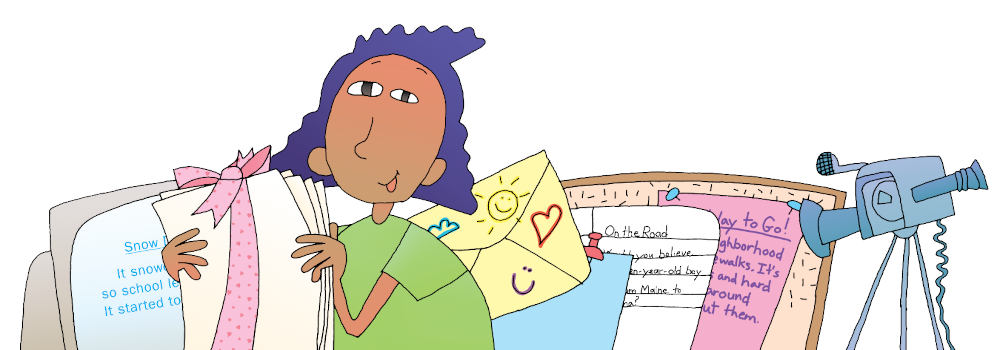WT 040
Page 40
Publishing Your Writing
Publishing is the final step in the writing process. It means sharing the final copy of your story, essay, or report. Brooke Brown, a student writer just like you, loves this step in the process. (See her quotation below.)
Sharing Your Work
You can share your writing in many ways. You might read it aloud. You might post it on a class blog. You might even act it out as a skit. On the next pages, you can discover more ways to publish.
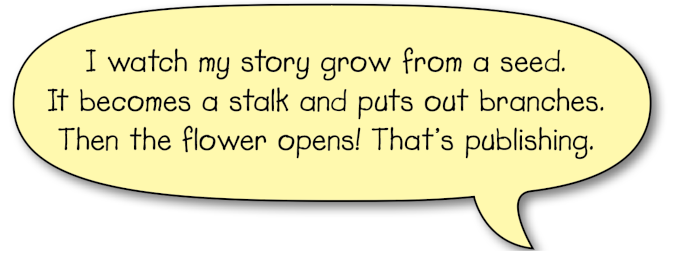
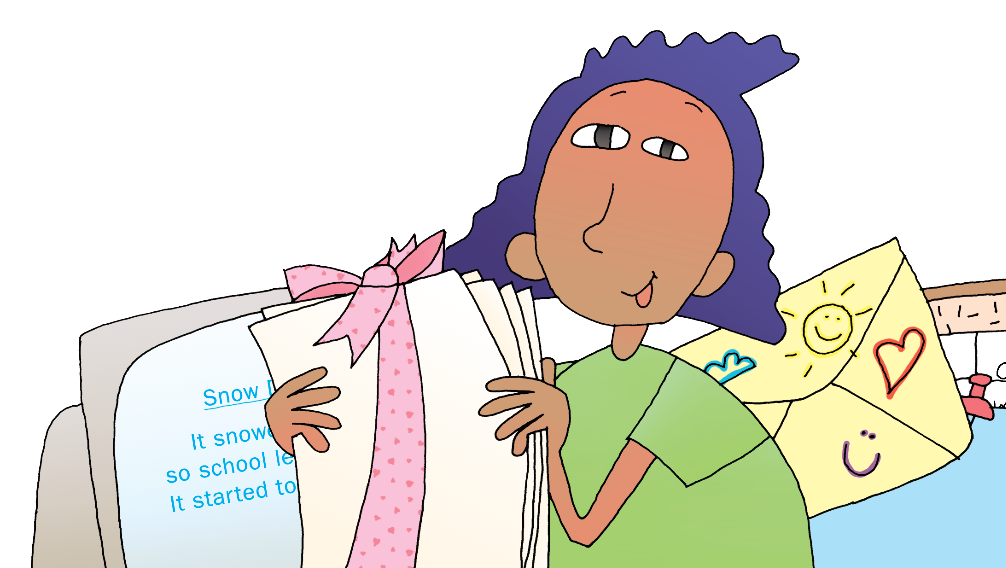
WT 041
Page 41
Great Publishing Ideas
Send It!
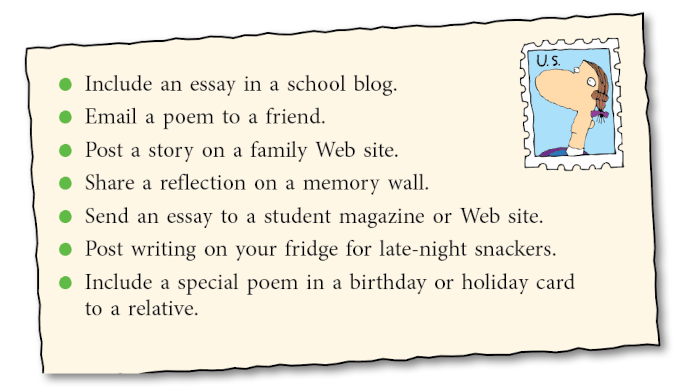
WT 041a
Act It Out!
- Ask classmates to help you act out one of your plays.
- Perform one of your stories or poems. (See pages 268–273 for guidelines for performing a poem.)
- Record a story and upload it to the Internet so faraway friends and relatives can enjoy it.
- Read one of your best essays to a parent-teacher group.
WT 042
Page 42
Bind It!
Make your own book by following these steps:
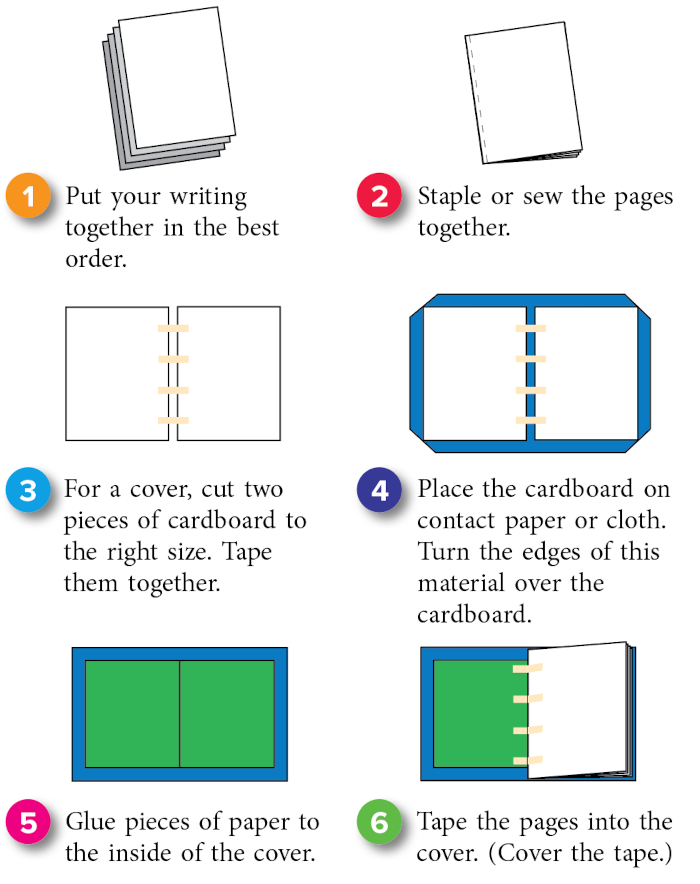
WT 043
Page 43
Creating a Portfolio
A portfolio is a place to collect your writing. A personal portfolio is just for you. You can place files in a computer folder or put pages in a binder or folder. You will want to store different kinds of writing in different parts. This page shows a portfolio plan with four parts.
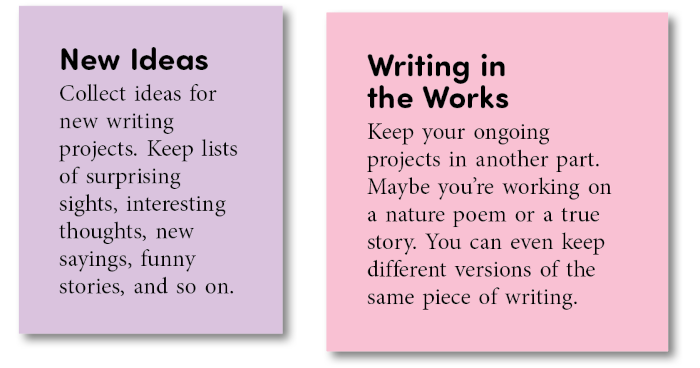
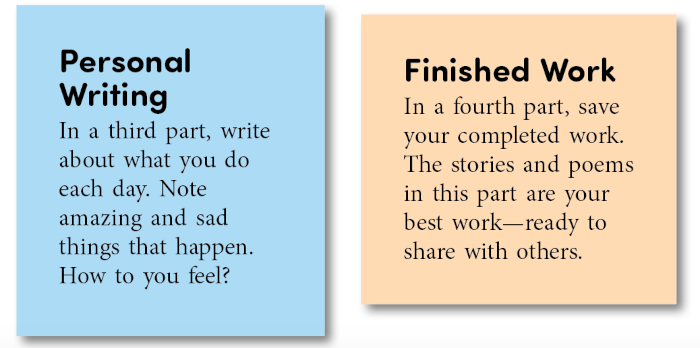
WT 044
Page 44
“When I look through my portfolio, I see who I was, and who I’m going to be.”
—Vera Sanderson
Making a Classroom Portfolio
A classroom portfolio contains writing you do in class. You can make it a showcase portfolio or a growth portfolio, whether on paper or in a computer.
Showcase Portfolio 🟪 Use this type of portfolio to show off your best work. Include writing that you like very much as well as writing your teacher wants to feature. Each piece in this portfolio should be carefully edited. You might even include illustrations and notes that tell about each piece.
Growth Portfolio 🟪 Use this type of portfolio to save writing from different parts of your school year. Include a piece from September, another from Halloween or Thanksgiving, and others from the new year. By the time you reach the month of May, you may look back at your September writing and say, “Wow! Did I write that? Can that really be mine?”
Tip
Carefully select what to include in your portfolio. Don’t include ALL your writing. (That’s a writing folder.) Instead, choose only your best work (a showcase portfolio) or work that demonstrates change over time (growth portfolio).
Tip
Carefully select what to include in your portfolio. Don’t include ALL your writing. (That’s a writing folder.) Instead, choose only your best work (a showcase portfolio) or work that demonstrates change over time (growth portfolio).
WT 045
Page 45
Portfolio Planning Tips
When you plan a classroom portfolio, follow these tips:
1. Follow your teacher’s directions.
- Make it attractive. Your teacher may give you a folder to decorate or may ask you to design your own.
- Choose well. Know how many pieces and what kinds of writing you should include. Also find out what response sheets you should complete.
2. Be organized.
- Save different stages of work. Your teacher may ask you to include notes and drafts for some of your writing.
3. Keep up.
- Complete writing assignments on time. Keep up with any other sheets or work your portfolio needs.
- Polish your work. Create neat copies and organize them.
Tip
If you have a question about your portfolio or writing assignment, ask for help. Stay on track with your work.
